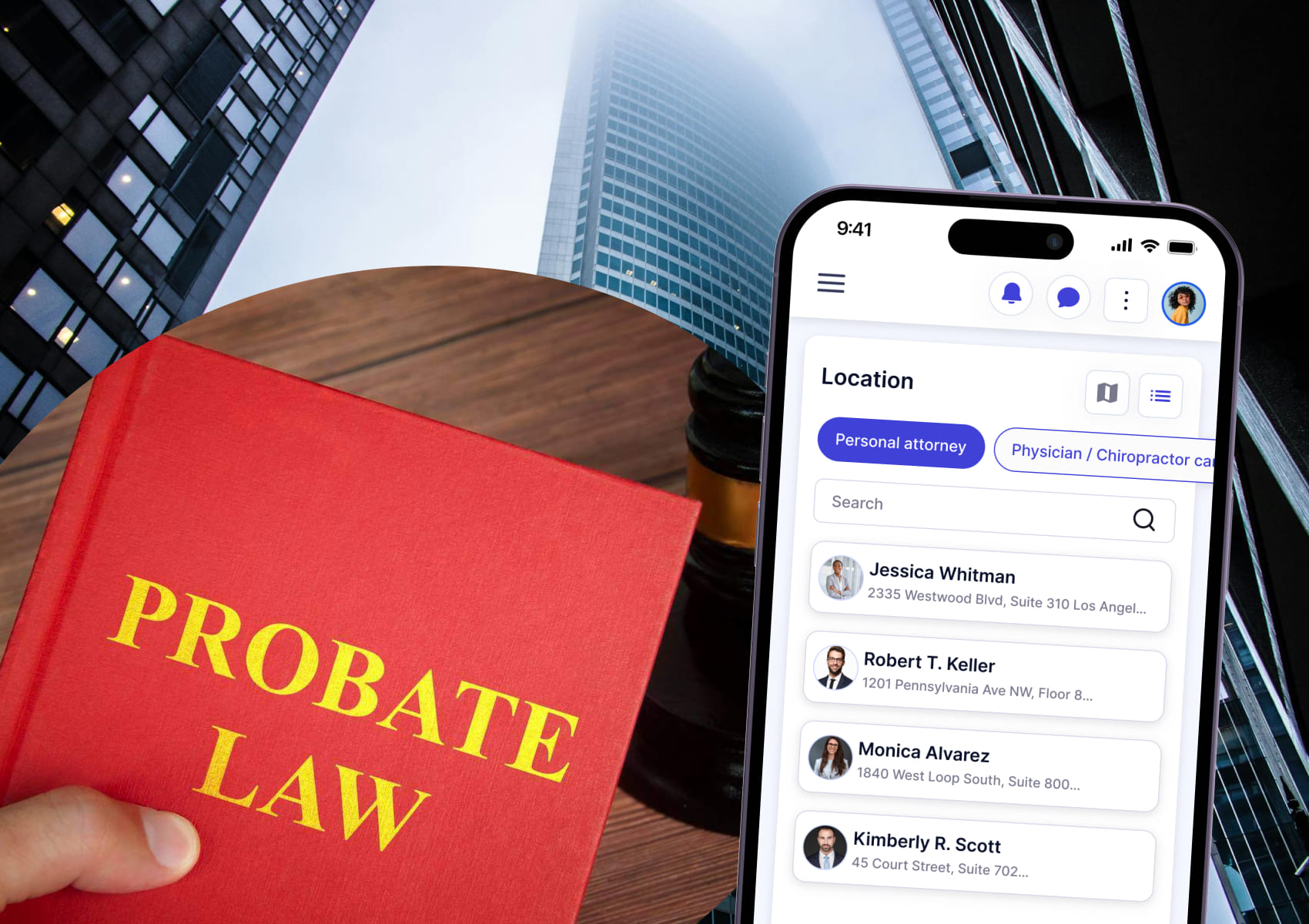When to Get a Lawyer for a Work Injury?

Work injuries are more common than you might think. One moment you’re doing your job, and the next, you’re dealing with pain, paperwork, and a whole lot of uncertainty. Maybe your boss is supportive — or maybe things just got awkward fast. Either way, one question starts to creep in:
Should I get a lawyer?
The answer isn’t always black and white. Not every workplace injury needs legal action — but some absolutely do. And waiting too long to get help can cost you in more ways than one.
Let’s talk through it: when hiring a work injury lawyer makes sense, what they actually do for you, and how to tell if you’re being treated fairly — or quietly pushed aside. This article is prepared by OwchBuddy’s professional lawyers with successful work injury cases. Read on for more!
Not Every Injury Needs a Lawyer — But Some Definitely Do
Let’s start with this: if you cut your hand, get a few stitches, and your employer’s workers’ comp insurance pays your medical bills and time off without any issues? You’re probably fine without legal help. In all other cases, you might need assistance.
Red Flags That Signal “Call an Attorney”
- Serious or Long-Term Harm:
- Traumatic brain injury, spinal damage, complex fractures, or any condition that may require surgery, rehabilitation, or future medical care.
- Extended Time Off Work:
- If you’re sidelined for weeks—or months—your wage-loss benefits and future earning capacity become major negotiation points, not simple math.
- Claim Denials or Payment Delays:
- An insurer that stonewalls, nitpicks paperwork, or flat-out refuses coverage is betting you’ll quit rather than fight. Legal leverage evens the odds.
- Employer Downplaying the Incident:
- When safety reports get “lost,” injury descriptions are rewritten, or witnesses feel pressured, you need independent advocacy—fast.
- Premature Return-to-Work Demands:
- Being pushed back on the job before you’re medically cleared can worsen injuries and remove benefits. An attorney can enforce proper work-restriction protocols.
- Settlement Talks You Don’t Understand:
- A check on the table may look tempting, but once you sign, your right to additional compensation usually evaporates. Counsel can calculate true lifetime costs and negotiate accordingly.
If any of these warning signs appear, schedule a consultation—most personal-injury and workers’-comp lawyers offer the first meeting free. A brief conversation now can prevent years of financial and medical regret later.
So When Should You Call a Lawyer? Here’s the Short List for 2025
If you’re uncertain when to get help, then follow this checklist to get a 100% answer.
Your Claim Was Denied
Denials often hinge on “missing” forms, minor date errors, or an adjuster’s interpretation of conflicting reports. An attorney audits your entire file, secures supporting medical opinions, and files a timely appeal—turning technical rejections into fully documented claims that force the insurer to revisit its decision.
The Injury Is Serious or Permanent
If surgery, prosthetics, or lifelong medication is on the horizon, basic wage-loss benefits won’t cover your future costs. A lawyer coordinates independent medical exams, projects lifetime earning capacity, and quantifies rehabilitation needs, so the final award reflects decades of medical and financial impact—not just this month’s bills.
You Receive a Settlement Offer
A lump-sum check can be enticing, but signing the release usually ends all future benefits—even if complications surface later. Counsel analyzes present value, Medicare set-aside requirements, and inflation-adjusted care expenses to determine whether the offer compensates fairly or lowballs you into forfeiting rightful long-term support.
Your Employer Plays Hardball
Pressuring you to return before clearance, “losing” injury reports, or hinting that filing a claim could cost your job are signals to lawyer up. Legal counsel enforces anti-retaliation statutes, documents interference, and, if necessary, files complaints with labor agencies while you focus on recovery.
A Third Party May Be Liable
Injuries caused by defective machinery, negligent subcontractors, or reckless drivers create a separate tort claim in addition to workers’ comp. An attorney identifies all at-fault parties, preserves evidence, and navigates parallel lawsuits so you can recover full damages—pain and suffering included—without jeopardizing comp benefits.
What a Work Injury Lawyer Actually Does
It’s not just about going to court (though they’ll do that too, if needed). A good work injury attorney helps you with many other things.
Builds a Strong Medical Record
Your lawyer orders treating-physician notes, specialist reports, diagnostic scans, and functional-capacity evaluations, then stitches them into a timeline that proves causation and long-term impact. A complete, well-organized file leaves the insurer little room to dispute how—and how badly—you were hurt.
Manages All Filings and Deadlines
Workers’-comp rules give you as little as 30 days to notify your employer and as few as 60 days to appeal a denial. Counsel tracks every statute-driven date, files the right forms in the correct venue, and prevents simple clerical errors from wiping out your claim.
Calculates the True Dollar Value
Attorneys project wage-loss benefits, medical inflation, vocational-rehab costs, and permanent-disability ratings. They also factor in future surgeries and prescription expenses, producing a data-backed figure that dwarfs the insurer’s opening offer and serves as a baseline for negotiations or trial.
Shields You From the Insurance Company
Adjusters may record calls, demand blanket medical releases, or imply that non-cooperation will halt payments. Your lawyer becomes the sole point of contact, filtering every request, pushing back on fishing expeditions, and forcing the carrier to communicate on the record.
Guards Against Employer Retaliation
If management pressures you to return early, reassigns you to menial tasks, or hints your job is at risk, counsel cites anti-retaliation statutes, documents each incident, and files complaints or civil actions when necessary—turning intimidation attempts into additional liability for the company.
Negotiates—and If Needed, Litigates—Settlements
When a lump-sum offer arrives, your attorney scrutinizes Medicare set-aside rules, offsets, and future-care estimates. If the number falls short, they leverage depositions and expert testimony to push for a higher figure—or proceed to a formal hearing and let a judge decide.
A work-injury lawyer is a strategist, evidence architect, and protective buffer in one. They make sure you heal without financial fear and keep insurers and employers from taking advantage while you’re down.
Is It Expensive to Hire a Lawyer?
Here’s the good news — most work injury lawyers don’t charge anything upfront. They work on a contingency basis, which means they only get paid if you win or receive a settlement. But let’s review all possible fees and charges in the industry.
No Up-Front Retainer—Contingency Only
Nearly every reputable workers’-comp or workplace-injury attorney fronts the entire legal bill and collects a fee only if you receive benefits or a settlement. If you lose, you owe no attorney fees.
Standard Fee Range: 15 – 25%
Most states cap or regulate the percentage lawyers can take from your award. Typical brackets look like this.
| Jurisdiction Example | Maximum Fee Allowed | Notes |
| California | 15% | Judge must approve fee based on case complexity |
| Florida | 20% of the first $5k, 15% of the next $5k, 10% thereafter | Sliding scale mandated by statute |
| Texas | 25% | Applied to wage loss and impairment benefits only |
So, if your attorney secures $50,000, a 20% contingency equals $10,000; you keep $40,000 free and clear.
3Case Costs vs. Attorney Fees
Filing fees, medical-record retrieval, independent medical exams, or expert-witness charges are case costs—distinct from attorney fees. Most firms advance these expenses and deduct them from the final recovery, interest-free, so you’re never writing checks during the litigation.
Court Approval Protects You
Workers’-comp judges (or state boards) review every fee petition to ensure it’s reasonable and complies with statutory limits, preventing surprise mark-ups.
Value in the Bargain
Insurers defend every dollar with in-house counsel and veteran adjusters. A contingency-fee lawyer evens that playing field, often turning a lowball $10 k offer into a six-figure settlement—far more than the fee you ultimately pay.
Hiring a work-injury lawyer usually costs nothing upfront, shifts the financial risk to the attorney, and can multiply your take-home recovery—all while you focus on getting back on your feet.
What If You’re Already in the Middle of a Claim?
That’s okay. You can hire a lawyer at any stage — even if you already filed a claim, or even if it’s been denied. In fact, many people don’t call a lawyer until something starts going wrong. But the earlier you reach out, the better. It’s much easier to prevent mistakes than to fix them after the fact.
How Do You Know If You’re Being Treated Fairly?
Here’s a simple gut check:
- Are your medical bills being paid without delay?
- Are you getting regular updates from the insurance company?
- Does your doctor (not your employer) decide when you go back to work?
- Has anyone explained your full benefits — not just wage replacement, but vocational rehab or permanent disability coverage?
If you’re not getting straight answers, or if things feel off, trust your instincts. You don’t have to wait until it’s a full-blown disaster to ask questions.
What to Ask a Lawyer in Your First Meeting
You don’t need to walk in knowing everything. But here are a few helpful things to ask:
- Do I have a strong claim based on what’s happened so far?
- What deadlines should I be aware of?
- How do you handle communication — phone, email, in person?
- What’s your contingency fee, and are there any extra costs?
- Have you worked on cases like mine before?
A good lawyer will walk you through everything, step by step — no pressure, no confusion.
How OwchBuddy Helps You Get Started
We know you’re dealing with a lot right now — pain, frustration, maybe even fear about what comes next. That’s why OwchBuddy makes it easy to get connected with a trusted work injury attorney in your area.
When you reach out through OwchBuddy, you’ll get:
- A free, no-obligation consultation;
- A clear explanation of your rights and options;
- Legal support from someone who’s seen cases like yours — and knows how to win;
- Guidance on what to do (and what not to do) moving forward.
You don’t have to handle this alone. And you don’t have to keep guessing whether you’re getting what you deserve. Book your free case review now and take the first step toward getting answers – and getting back on your feet.
Thank you for your comment
It will be published after moderation

 OwchBuddy
OwchBuddy







Comments 0